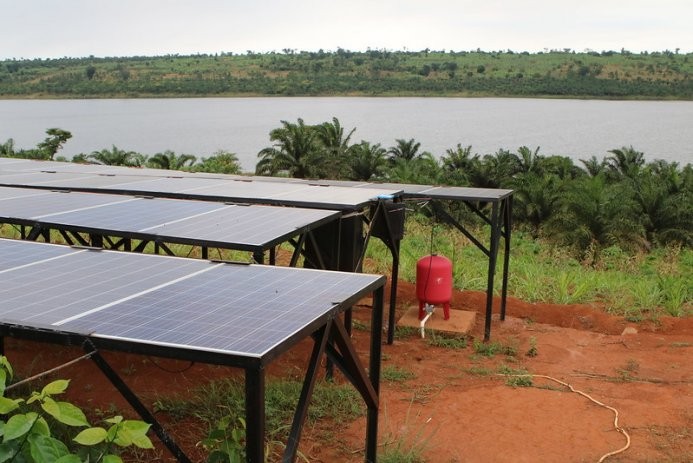This article was first published on Climate Analytics website on 19 May 2020.
The coronavirus pandemic adds yet another shock to the multiple challenges that more than a billion people living in the Least Developed Countries (LDCs) already face in day-to-day life. It is much more than a health crisis. It has the potential to create devastating health, social, economic and environmental crises that will leave a deep, long-lasting mark. However, it is an opportunity to adopt and implement sustainable solutions during the recovery process, also for LDCs, without losing sight of the climate crisis.
More in the series of blogs on coronavirus pandemic impacts on climate-vulnerable countries:
Facing Covid and climate Pacific island capacity stretched by Paddy Pringle
Coronavirus underscores small islands climate vulnerability by Adelle Thomas
A worsening situation
The coronavirus crisis has affected work, business travel and lifestyles around the world and has exacted an unprecedented human toll as underprepared health systems struggle to cope and workers in lockdown lose their livelihoods. However, the insufficient infrastructure and fragile health systems make the situation in LDCs even more difficult.
According to the World Health Organization, maternal mortality rates in LDCs remain around double that of the global average. An estimated 47% of deaths in LDCs overall are caused by communicable, maternal, perinatal, and nutritional conditions, compared to 22% globally. In terms of emergency preparedness, the WHO confirms that 44 LDCs experienced a health emergency or outbreak between January 2015 and October 2016. These were due to natural disasters in 26 countries, conflict or humanitarian crises in 16 countries and disease outbreaks or epidemics in 40 countries.
Health systems in LDCs are currently unable to cope with the rapid increase in new cases of COVID, and these countries lack the resources to cope with the socio-economic consequences of lockdown, the only practical solution until a vaccine is available.<
As the coronavirus pandemic has hit major sources of revenue, many LDCs – already economically weak – are struggling to balance their books and to allot resources to fight the health crisis on top of other challenges.
COVID-19 adds on to climate change impacts
For many LDCs, COVID-19 and climate change have conspired to make their situation even more difficult. Even during the pandemic, climate change continues to threaten the health and safety of people in the LDCs.
Just last week, Bangladesh was hit by the most powerful cyclone in more than a decade. Cyclone Amphan devastated coastal villages, knocking down mud houses, tearing down utility poles and uprooting trees. Protecting people from both threats at the same time has been extremely challenging – evacuees were crowded into shelters, which made social distancing required to stem the spread of the virus impossible. Last month, Vanuatu underwent similar trauma of compounding crises due to Tropical Cyclone Harold, resulting in more than 100,000 people losing their homes.
For other South Asian countries like Nepal and Bhutan, the major source of revenue generation from tourism and remittance (which contribute a significant portion of the Gross Domestic Product (GDP) in both countries) has been hardest-hit by the pandemic and will continue to suffer in the months ahead.
In Africa’s volatile Sahel region, UN agencies and private aid organisations have cited unprecedented humanitarian needsdue to climate change-induced food insecurity and COVID-19, which combined are stripping communities of the ability to protect and provide for themselves.
In Yemen, the situation is even more dire, as numerous diseases and malnutrition are already endemic and the protracted civil war has displaced millions. At this difficult time, 24 million Yemenis – 80% of the population – are in need of humanitarian assistance and half of health facilities are dysfunctional or have been destroyed in the conflict.
In East Africa, a year of exceptional rainfall, floods and locust outbreaks is decreasing the resilience of vulnerable populations just at the time of the COVID-19 pandemic. The combination of these disasters is not random, as the floods, lake level and locusts can all be linked to climate change.
Hundreds of people in Uganda, Somalia, Rwanda and Ethiopa have been killed, and hundreds of thousands have been displaced from their homes due to this compounded crisis. Meanwhile, in South Sudan, for the first time, COVID-19 has been confirmed in a crowded civilian protection camp, a worrying development for a country that’s one of the world’s least prepared for the virus’ spread.
These examples are a reality check of how vulnerable we really are. The coronavirus pandemic has forced vulnerable communities to deal with compounding crises concurrently.
Implications for LDC graduation
A dozen LDCs are due to graduate from the “least developed” category by the middle of this decade and six more were close to meeting the criteria for graduation for the first time. That timetable now looks uncertain as these countries are already hard hit by the compounding effect of COVID-19, and may require adequate time to recover and stabilise their economies.
However, the current downturn shouldn’t be seen as a one-off, and we can’t expect LDCs to bounce back quickly. If the 2007-08 global economic crisis is anything to go by, LDCs will take years to recover. Global health, economic and environmental crises are becoming more frequent, and the fallout for LDCs is regular and calamitous. Even before the current shock, LDCs suffered worse than most from trade, financial and commodity price volatility, cyclones, droughts and other disasters.
The current situation highlights the urgency to act on the recommendation of the UN Committee for Development Policy (CDP) – the body responsible for monitoring the categories and recommending countries for graduation – to the UN Economic and Social Council (ECOSOC) to create a “category of countries facing extreme vulnerability to climate change and other environmental shocks” which would entitle them to receive support specifically targeting those vulnerabilities.
This recommendation was made in 2018 when Kiribati and Tuvalu were found eligible for graduation, however it was difficult for these countries to retain this status because of their extreme economic vulnerability and extreme vulnerability to climate change. There has been no update about the creation of such a category in the annual meeting of the CDP.
The next review to recommend countries for the graduation is scheduled for February 2021, which will be based on data up to 2019, not showing the impact of COVID-19. However, there is also a provision to consider additional information in the form of supplementary graduation indicators and country-specific analysis that include information on COVID-19 and its impacts.
Towards sustainable solutions
“As the world responds to one crisis, we cannot let another crisis worsen and climate change will continue to threaten the lives and livelihoods of our people after the pandemic has ended”, said Mr. Sonam P Wangdi, Chair of the LDC Group. He further stressed that the recovery process from the current COVID-19 crisis presents an opportunity to transition to just and climate-resilient green economies.
While climate change will have severe consequences for LDCs, combating it will bring a net positive impact on not only the environment but the economy as well. For example, energy imports are a substantial burden to LDCs – some spend more on fuel imports than they do on health care and education per capita. If all LDCs halved their spending on fuel imports by installing more domestic renewable energy capacity, they could together save over 7 billion USD in fuel import expenditures – a reasonable amount of resources that can be used to respond to the immediate crises.
Therefore, moving towards clean energy that can power a COVID-19 recovery is an affordable solution in line with climate targets, which can also help mitigate the effects of the COVID-19 crisis on people’s livelihoods and local economies. Ever more governments, businesses and economists see the response to COVID-19 as an opportunity to shift investments away from fossil fuels towards renewable energy.
Keeping up the climate action momentum
Like in other countries, COVID-19 has affected regular day-to-day business in LDCs. However, regardless of these difficulties, LDCs are determined to be a part of the solution in responding to the climate crisis and to play their part in limiting global temperature rise to 1.5°C. Just this month, Rwanda was the first LDC to submit its new domestic climate change targets known as Nationally Determined Contribution (NDC) under the Paris Agreement, while others continue their preparations to do the same.
As UN Secretary-General Antonio Guterres said, “Both the coronavirus and climate change are very serious problems and require a determined response from all sides and both must be defeated”. He added that COVID-19 is a temporary problem that will, in time, go away. But climate change “has been there for many years and will remain with us for decades and require constant action.”


